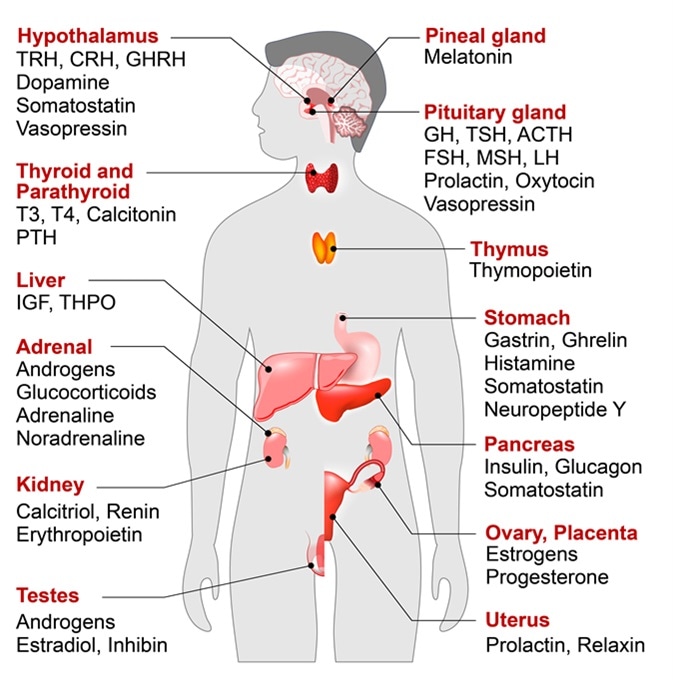Site Under Development, Content Population and SEO, Soft Launch 1st January 2020
Hormones are signaling molecules that relay specific chemical messages throughout the body. They travel through tissue fluids, such as the bloodstream to stimulate particular cells or tissues and exert their effects.
The body produces many different types of hormones. Together, hormones act on almost every cell, organ and bodily process and function. In particular, hormones play a vital role in the regulation of growth and development, cognition, metabolism, hunger/thirst, reproductive processes and sexual function. Such processes are highly important for normal development in young children.
Hormones are produced and secreted into the bloodstream by groups of cells called glands – together, glands make up the ‘endocrine system’.
The major glands of the human endocrine system include the:

Hormones play a significant role in the development and overall health of a child, and this means that abnormal functioning of any endocrine gland in the body can have dramatic implications. Most disorders associated with hormonal imbalance are typically linked to abnormal growth or sexual development.
For example, during normal pubertal development, the hypothalamus releases corticotropin releasing hormone (CRH) which stimulates FSH and LH to be secreted from the pituitary, consequently causing the ovaries or testes to begin producing sex hormones.
However, if either one of the endocrine glands involved in this process start functioning abnormally and produce either too much or too little hormone, this directly impacts pubertal development. Precocious puberty, for instance, is when puberty onset occurs at a very early age in young children, meanwhile some adolescents can experience a delayed onset of puberty; both disorders may be caused by abnormal hormone secretion.
Children who may have a disorder caused by hormone imbalance require the attention of pediatric endocrinologists, who are specialized in the diagnosis and treatment of conditions involving the endocrine system.